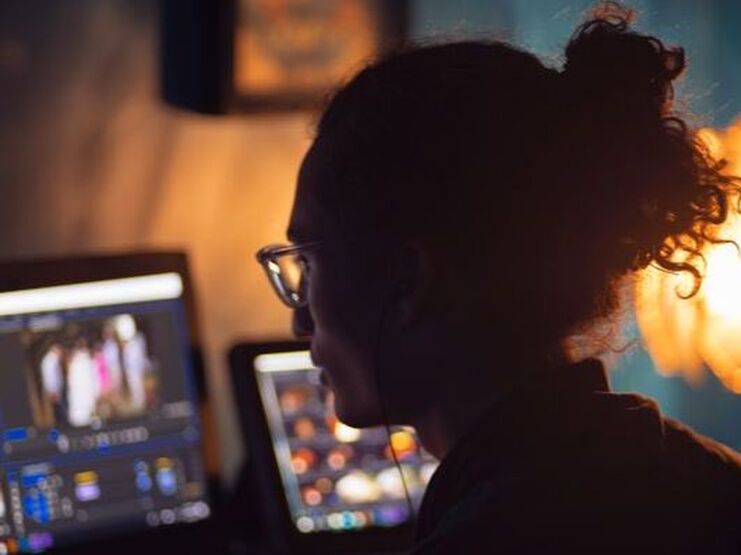|
|
|
Blog post by Hamdullah Baycar, University of Exeter, UK
‘It kind of makes me feel like Batman or Superman. You can say the things you want to say with your own voice and your own style’, said Malcolm Bidali, a Kenyan security guard employed in Qatar, regarding his activism about labour conditions on social media. His activism led to his detention in 2021. The incident gained significant public attention, and 240 Qatar Foundation students, alums, faculty and staff signed a petition asking for his release.
Two days after the petition, even Qatar's state-owned media, Al Jazeera, was involved in the debate and ran with the headline, ‘Concerns over Qatar's arrest of a Kenyan security guard’. Thus, the digital sphere, which initially caused his detention, ultimately became the tool that freed him. Although Bidali's case cannot be considered representative of the entire Gulf region and is not directly related to the UAE, it does demonstrate the power of social media and the digital sphere, even in supposedly autocratic states.
In my Identities article, ‘Emirati expats in social media: a new arena for involvement and political expression?’, I analyze the participation of non-nationals in the social life of the UAE. I examine citizenship beyond its official legal status. Drawing on concepts from new citizenship studies, particularly Engin Isin's Act of Citizenship and Neha Vora's Consumer Citizenship, I contribute to the emerging literature that goes beyond the focus on kafala (sponsorship) or labour issues in the Gulf. I investigate everyday topics and their relevance to the experiences of non-nationals residing in the UAE. My four cases consist of analyses of two satirical YouTube channels and two webinars.
My two satirical cases, for example, creatively show the stereotypes of citizens towards non-nationals and vice versa. Thus, I show how the diverse non-national residents, who comprise around 80–90% of the population, have demonstrated their ability to broaden public discussions about identity and belonging. While my cases demonstrate diverse attitudes and approaches to claiming citizenship beyond its legal understanding, they also reveal shared experiences of belonging and bordering among different groups. For instance, the two webinars I examined, Desi-Khaleeji and Muwafed, show how the shared experiences led the participants from diverse backgrounds to use names with similar connotations to refer to their lived experiences in the country. Desi-Khaleeji refers to the dual identity of South Asian residents who consider themselves both ‘Desi’, reflecting their South Asianness, and ‘Khaleeji’, representing their life in the Gulf, though not all participants agreed on the connotation. Muwafed combines ‘muwatin’, meaning citizen, and ‘wafed’, meaning expat, in Arabic, reflecting the hybrid status of non-national Arab residents as half expat and half local. On the other hand, the satirical videos show how non-nationals are unaware of certain features of UAE culture and society and illustrate the impact of the UAE's social hierarchy. These social media activities are driven by an intention to popularize local knowledge and understanding of the UAE and the Gulf. This allows non-nationals to debate and discuss issues that shape Emirati society. The cases examined reveal insightful perspectives on the experiences of non-national populations in the UAE about their sense of belonging and bordering, albeit not necessarily involving activism akin to Noah's. While analyzing these forms of involvement, I do not argue that legal citizenship is insignificant. I recognize the value of legal citizenship and long-term residency, such as permanent residency. However, I say that activities such as blogging, vlogging and other online expressions challenge traditional notions of citizenship. By engaging in nostalgic, academic and satirical topics, non-national residents challenge the citizen/non-citizen dichotomy.
Read the Identities article:
Baycar, Hamdullah. (2023). Emirati expats in social media: a new arena for involvement and political expression? Identities: Global Studies in Culture and Power. DOI: 10.1080/1070289X.2023.2228606 OPEN ACCESS
Read further in Identities:
Uyghur transnational identity on Facebook: on the development of a young diaspora Reflections on diaspora and soft power: community building among female US expats in Southern Europe The staging of cultural diversity in Dubai: the case of Dubai Art Fair
0 Comments
Your comment will be posted after it is approved.
Leave a Reply. |
|
Explore Identities at tandfonline.com/GIDE |
|
The views and opinions expressed on The Identities Blog are solely those of the original blog post authors, and not of the journal, Taylor & Francis Group or the University of Glasgow.


